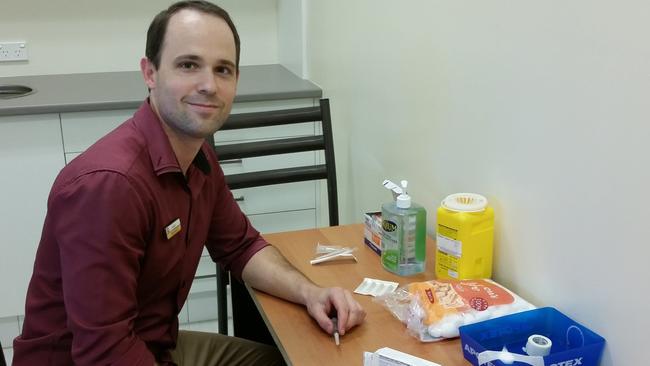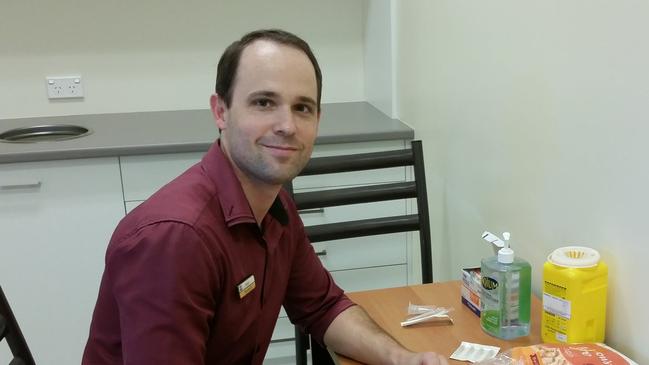Bundaberg pharmacist raises concerns over dispensing changes
A Moore Park Beach pharmacist fears he will have no choice but to send his patients to emergency rooms for medication following the recent 60-day dispensing announcement from the federal government.

Bundaberg
Don't miss out on the headlines from Bundaberg. Followed categories will be added to My News.
It was pitched as a money saving positive change for regular script holders, but a Moore Park Beach pharmacists worries recent changes to dispensing will only harm patients.
On Wednesday, April 26, the Australian Government announced from September 1, 2023 script holders will be able to fill 60 days worth of medication with a single script, compared to the previous standard practice of 30 days.
Investigation launched into shooting death of young mum
Pitched as an effort to alleviate the rising cost of living, this decision promises to “halve” medication costs for “at least 6 million Australians”.
Mental health upgrade to focus on young and vulnerable
“Hundreds of medicines for conditions like heart disease, cholesterol, Crohn’s disease and hypertension will be cheaper,” the announcement said.
“This reform won’t affect medicine availability and it won’t add to shortages.”
Moore Park Beach pharmacist Adam Harradine feels this decision is “pitiful” and will actually raise health costs for patients while risking lives and increasing medication waste all while putting further stress on regional pharmacies.
He said the supply chain was already under struggling with 400 medications across the country out of stock and a further 70 on a critical shortage list.
“We already have shortages for medicines for blood pressure, heart health, diabetes and there has been antidepressants that aren’t available,” he said.
“These are not medications that should not be stopped abruptly.”
Mr Harradine has worked in pharmacy for more than 20 years and as the owner for Moore Park Beach Pharmacy and co-owner of Priceline Pharmacy Bundaberg he is worried.
Mr Harradine’s concerns are that the sudden increase in dispensing needs for patients means less medication will be available on the shelves for those who need it most.
He worries patients will then have to return to their doctor for a different script -at a cost- if they can see their doctor within an appropriate timeline.
“There is no option for me to give patients an alternate,” he said. “I can send them to their doctor if they are lucky enough to get in on time.
“They’re not going to be getting anything so I am going to be sending them to the Emergency Department.”
He said industry medication guarantees mean nothing while major suppliers choose not to sign on and medication shortages will only lead to waste as patients attempt to meet their needs.
“We’re going to see so much wastage when patients get their medication stopped by the doctor when they have just picked up two months supply,” he said.

Associate Professor and Rural Chair of the Royal Australian College of General Practitioners, Michael Clements, refuted Mr Harradines concerns.
He said a vast majority of his patients would benefit from the announcement, which was first pitched five years ago.
“This is a massive win for my patients because this instantly means for them half priced medication,” he said.
“This is immediate hip pocket relief for my sickest patients.”
Dr Clements said doctors would work with pharmacists if shortages began to impact patients and that only seven of the 350 medications recommended for the change were facing current shortages.
“I’m not worried about my patients facing a shortage because if the pharmacist can only given them one bottle when they are entitled to two bottles because the pharmacist wants to hold one bottle, that’s fine,” he said.
He said the decision to prescribe 60 days worth of medication would be aimed at patients who had spent months or even years on the same medication.
“Patients who are stable and need to be on medications for 20, 30, 40 years do not need to be going back to the pharmacist every 28 days,” he said.
“We’d never do this for someone on their first script or if we think there is a risk of hoarding or overdose.”
Queensland Pharmacy Guild vice-president Amanda Seeto acknowledged while there are only seven medications facing shortages in the government’s list, that was not the reality on the ground
As a member of the Good Price Pharmacy Warehouse Group she said their Bundaberg pharmacy was currently facing shortages on more than 40 medications, 20 with no supply ETA in sight.
She said several of those medications were antibiotics, cholesterol and heart medications.
Mrs Seeto is concerned these dispensing changes will put more pressures on an already strained health care system as patients are forced to bounce between doctors and pharmacists trying to fill scripts.




